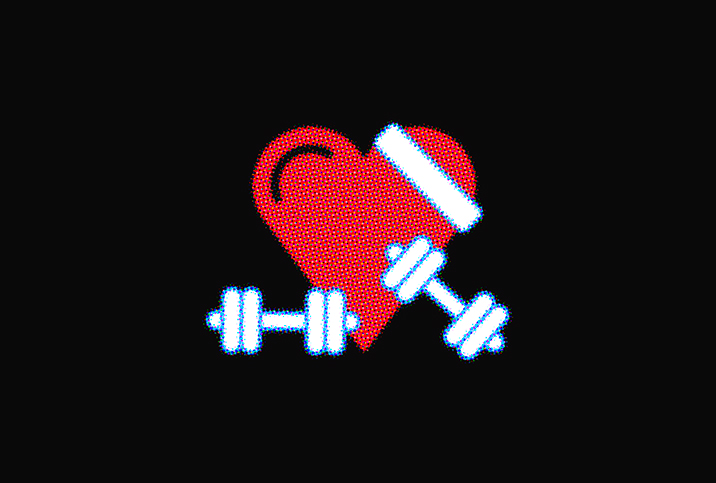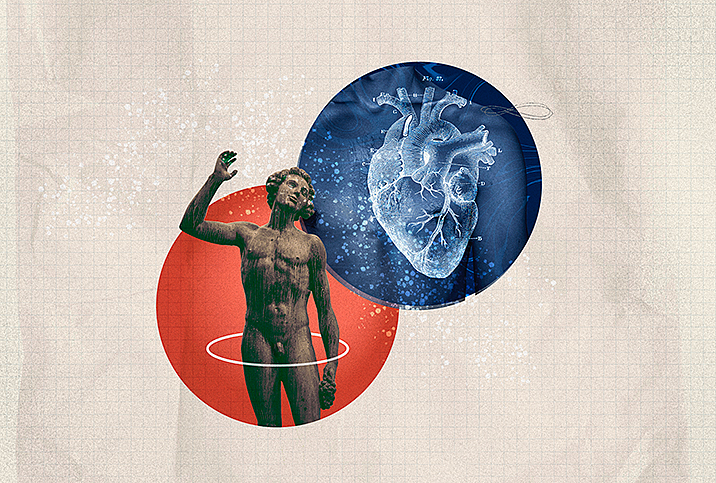How Does Heart Disease Affect Men?

Rather than referring to one specific ailment, "heart disease" is an umbrella term for conditions that negatively affect the way the organ operates. From structural defects to acquired problems, heart diseases are vast in their variety.
No one is immune to the development of conditions such as coronary artery disease (CAD), valvular heart disease and cardiomyopathy. Knowing how heart disease in men can present might mean the difference between heading it off early or allowing it to develop.
The male population is no stranger to heart disease. It is the No. 1 cause of death for men in the United States, with extremely high incidences in several Southern and Southeastern states, according to the Centers for Disease Control and Prevention (CDC).
Heart disease is blamed for about one-quarter of male deaths in the U.S., killing nearly 383,000 men in 2020. Knowing this, it's important for men to be aware of everything heart disease entails because it can affect their entire life.
Men's heart health
Simply getting older and living life puts a lot of strain on the cardiovascular system, especially the heart. It is responsible for the efficiency of an array of biological and functional processes, including respiration, digestion, movement and reproduction.
None of it would be possible without the heart's ability to filter and pump blood throughout the rest of the body, which is why its diseases are so detrimental.
"Heart disease is part of a spectrum of vascular disease," said Daniel L. Kulick, M.D., a board-certified cardiologist with Providence Mission Hospital in Mission Viejo, California.
He said the body is composed of arteries all prone to the same disease: atherosclerosis. Colloquially known as "hardening of the arteries," it occurs when deposits of cholesterol and other substances collect in the arterial walls and narrow the channel blood passes through.
In addition to blocking the arteries, heart diseases can compromise the remaining parts of cardiovascular anatomy. The heart itself is composed of four chambers: the left and right atria and left and right ventricles. They are all separated by valves. The chambers are equipped to handle the input and output of blood through the recycled oxygenation process, and the valves act as gates to prevent cross-contamination.
Wrapped in a protective layer called the pericardium, the heart is structured for optimal blood circulation throughout the body via a chain of vessels. If any one of these components isn't up to par, a detrimental domino effect occurs in other bodily systems.
Treatment options, side effects and costs
Numerous medical interventions can help manage heart disease.
Diet and lifestyle are integral to preventing and managing heart disease. Next to genetics, a poor diet and a sedentary lifestyle are the main contributors to disease development. High cholesterol, blood pressure and glucose levels are positively correlated with heart disease. The conditions frequently co-occur with diabetes, which is another notable risk factor, so managing them well serves multiple purposes.
To reduce your chances of developing heart disease, exercise, eat healthy foods, abstain from smoking and don't drink alcohol to excess.
A paper published in the Journal of the American Heart Association suggested that specialized dietary treatment of CAD resulted in a 1.6 percent new cardiac event rate over the follow-up period. Traditional data expected a 30 percent to 40 percent rate, which is a big difference.
These findings, co-presented by Steven Gundry, M.D., a cardiothoracic surgeon turned author and podcast host in California, and the founder and director of the International Heart and Lung Institute as well as the Center for Restorative Medicine, are the reason Gundry no longer performs bypass surgeries.
Medications help many people manage their heart disease. They are available over the counter or through a prescription to target the source of the issue.
For example, anticoagulants prevent blood clots within vessels by hindering blood's coagulation capabilities. Beta blockers slow down the heart rate to reduce overall blood pressure.
Some of these treatments introduce unwanted side effects, including erectile dysfunction (ED), dizziness and gastrointestinal distress. They can also be quite costly.
Sometimes medications are insufficient to treat heart disease. In these instances, patients may need a procedure or a medical implant. The most aggressive treatments for very severe artery narrowing caused by coronary artery disease are angioplasty and stenting, which involve mechanically opening arteries to reestablish blood flow to the heart, according to Kulick.
"In some instances, when there are extensive blockages on multiple sides, that's when sometimes open heart surgery is necessary to do what's called a bypass procedure," he said, though he emphasized such procedures are only for advanced cases. These interventions are the most expensive treatments.
Heart health, sexual health and ED
Male sexual health and heart disease are closely intertwined. CAD, for instance, is defined by arterial narrowing, but the arteries extend far beyond the cardiac region.
"We have these arteries going to our legs, brain and abdominal organs, and they go to the sexual organs," Kulick said. "So if men have narrowing of the arteries that go to the reproductive organs, they have problems with ED."
Erections are contingent on the arteries' ability to transfer blood to the penis, so obstructed flow leads to issues developing or maintaining an erection.
ED is a consequence of known heart disease, but it can be a warning sign, too. It is sometimes an early indicator of atherosclerosis, even preceding heart attacks. People with diabetes or hypertension—two key heart disease predispositions—often suffer from ED as well, so symptoms that get worse may indicate disease progression or a newly developed condition.
Psychologically, self-consciousness and depression stemming from erectile issues or fear of cardiac episodes can lead to reduced libido and an aversion to sex. However, being diagnosed with heart disease or having a heart attack doesn't have to signal the end of your sex life.
Research and health organizations suggest regular sexual activity actually strengthens the heart muscle, eases negative psychological affect, and lessens the likelihood of more episodes unless you have an unstable condition such as heart failure, arrhythmia or angina.
Heart disease medications, effective as they are, can cause or exacerbate ED symptoms. Beta blockers and diuretics regularly receive these complaints. Drugs called phosphodiesterase type 5 (PDE5) inhibitors have been effective for many men, though they're not suitable for everyone because there are numerous drug interactions to consider.
Kulick said he is often asked by patients whether ED drugs are OK to take with other heart conditions or drugs. Generally, they are safe, he said.
"The only caveat is if they're on what we call long-acting nitrates, which is one class of medicines for people with mild to moderate blockage. If they take the nitrate, it can be dangerous to take things like Viagra or Cialis or something like that," Kulick said.
Complications and related conditions
Untreated or poorly maintained heart disease can be deadly for men. Angina can negatively affect daily activities, and the added cardiac strain worsens comorbid conditions. Heart attacks and strokes—even if they're "silent"—cause varying levels of damage to cardiovascular health, sometimes irreparably.
Gundry suggested males be cognizant of any symptoms, including chest tightness and chest pain, when exercising or walking. Also, immediately address pain on the left side of the body from the shoulder down to the arm or going into the neck and jaw.
Improper heart health causes the entire body to pay the price. Anything from fatigue to sexual dysfunction could be warning signs of a deeper issue, so take preventive measures and engage in long-term efforts to protect the cardiovascular system.
Surgical procedures and certain medications may relieve short-term symptoms, but they're not sustainable. Such treatments may actually do a disservice to some people, Gundry explained.
"People have been convinced that, 'OK, I got a stent, now I'm going to go back and do exactly what I want to do. I'm fixed,'" Gundry said. "But what they don't know is that yeah, you've got a stent and fixed this acute problem, but what has caused you to need that stent is still ongoing in all your other blood vessels. And unless you make a change, it will be back."


















